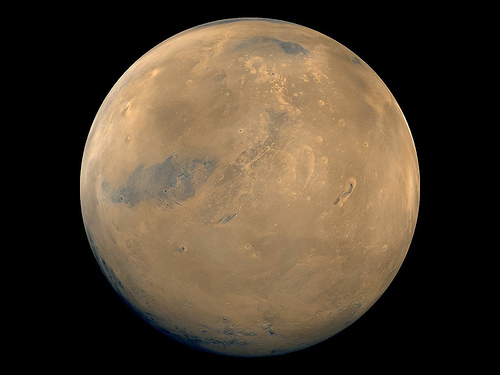It's snowing dry ice on Mars
Mars may look just like Arizona, but the Red Planet's weather is even more extreme.
On Earth, snowfall happens when water in the air drops below the freezing point of water (32F) and falls to the ground in flakes. But on Mars, it snows dry ice: frozen carbon dioxide. When the CO2 in the Martian atmosphere falls below the freezing point of CO2 (-193F) flakes of frozen CO2 fall to the ground in what scientists believe is the only example of carbon dioxide snow in our solar system.
Every year in winter, Mars experiences a massive cloud that gathers over the south pole. This persistent cloud can be as much as 310 miles across. It is a huge seasonal blizzard that can dump inches - even feet - of fluffy white CO2 snow on the planet's surface.
Mars may look just like Arizona, but the Red Planet's weather is even more extreme. Of all the planets in our solar system, Mars has the most Earth-like set of seasons, due to the planet's tilt and the similarity to our proximity to the sun. Mars has observable seasons, polar ice caps, and Earth-like storms.
